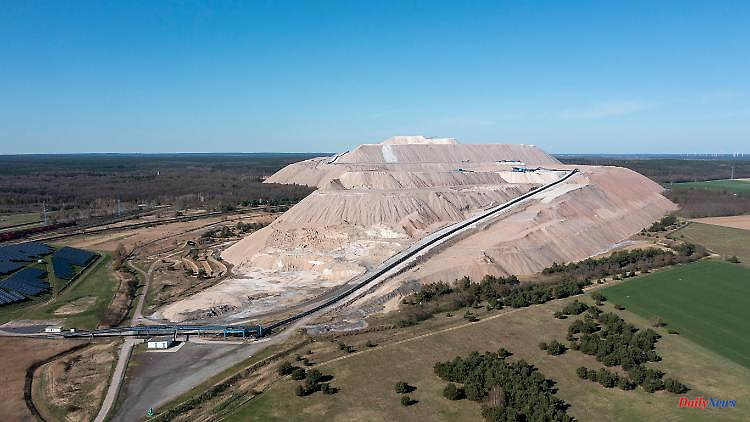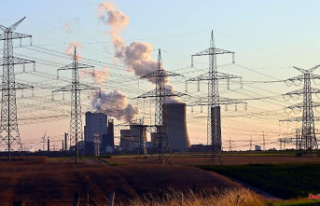The major potash producers in Belarus and Russia have been cut off from the market as a result of the sanctions imposed for the attack on Ukraine. This leads to higher prices and increasing demand from the competition. At K S, for example, income doubles. Other indicators are increasing even more.
The fertilizer and salt manufacturer K S is booming thanks to the sharp rise in potash prices during the Ukraine war. "We had very good framework conditions for our business. In particular, the lack of supply from Belarus and Russia played a role here, which was also reflected in the potash price," said CEO Burkhard Lohr. "We achieved this good quarterly result with the high price for potash products."
In the second quarter, the operating result jumped from 112 million to 706 million euros within a year, as the Kassel-based company announced. K S was able to more than double its turnover from 664 million to 1.5 billion euros. K S reaffirmed its targets for the year despite possible burdens in the event of a gas shortage.
Because of the war in Ukraine, fertilizers have become increasingly scarce and expensive. The sanctions against the competitors Belaruskali from Belarus and the Russian Uralkali, which together account for around a third of the world production of potash - one of the main nutrients of plants - also contributed to this. K S produces around ten percent of the world's potash.
Since the beginning of the war, the market prices, which had already risen significantly before, have risen sharply again and in the meantime reached new highs. In almost all markets, however, they have fallen again in recent weeks.
In the second quarter, K S achieved average prices of EUR 641 (previous year's period: EUR 264) per tonne in Europe and USD 727 (293) per tonne overseas for its entire product portfolio. In the second half of the year, Lohr expects slightly better prices again. The company assumes that, thanks to the sharp rise in prices, it will be able to more than compensate for higher costs for energy, logistics and materials.
For the year as a whole, CEO Lohr continues to expect an operating result of 2.3 to 2.6 billion euros (previous year: 969 million), although he expects charges in the event of a possible gas shortage. Lohr not only expects additional costs for gas purchases, but also assumes that K S will only receive 75 percent of its gas requirements in the fourth quarter. "There are compensation options here, partly through electricity and oil, and we calculated that and the result was a low three-digit million amount. We included that in the forecast," said Lohr.












